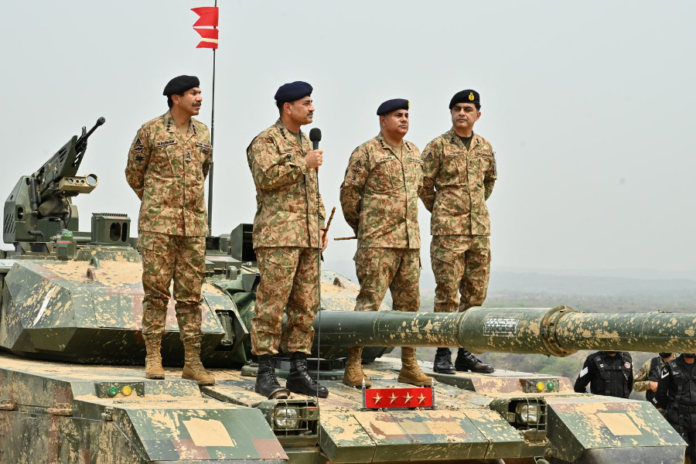Since its bloody inception in 1947, Pakistan has been ruled – directly and indirectly – by its military establishment. The current political circus unfolding in Pakistan, with Pakistan Army chief Field Marshal Asim Munir consolidating his rule is the latest episode of this sordid drama.
The 27th amendment to Pakistan’s Constitution, which was ratified on November 13, formalizes the long-known fact that the military establishment controls the country under the pretence of democracy.
The coalition government led by Pakistan Prime Minister Shehbaz Sharif functions under the approval of Pakistan Army chief General Asim Munir, who has been gradually solidifying power.
Following a brief confrontation with India in May, the Pakistan government promoted General Munir to the rank of Field Marshal, making him the second five-star general after Ayub Khan.
The amendment goes one step farther by reorganizing the judicial and military command. It amends Article 243 of the Pakistani Constitution to create a position called head of Defence Forces, which will oversee the Army, Navy, and Air Force. The head of the Pakistan Army will also hold this position.
In order to manage nuclear and strategic assets, it also establishes the position of Commander of the National Strategic Command. On the suggestion of the army chief, the Prime Minister will appoint the commander. Most remarkably, the law grants the President and any officer promoted to a five-star rank, such as General Munir, lifetime immunity from criminal charges. Five-star officers can only be dismissed by an impeachment-like procedure under Article 47, and they will always wear their uniform.
General Munir will essentially be the nation’s new centralized power center. Additionally, the amendment eliminates the Supreme Court’s constitutional interpretation authority and creates a new constitutional court with government-appointed judges. In protest, a number of top judges have resigned. Pakistan has not been very strong when it comes to democracy.
Also Read: Chicken’s Neck: Has India invaded Bangladesh?
However, at crucial junctures, members of the political class and civil society have recaptured a little amount of democratic space by opposing strong generals.
However, it appears that the ruling class is more eager than ever to take a backseat to the generals. Imran Khan, who has been incarcerated for more than two years, is the sole prominent politician opposing General Munir.
With an opposition leadership imprisoned and a crippled government, General Asim Munir is extending his power with complete constitutional protection. However, the climb to power of Pakistan’s military dictators usually culminates in their demise.
His attempt to seize power coincides with the nation’s battle against an insurgency in the tribal regions along with poor relations with Afghanistan and India, which have hit an all-time low.
The “hybrid” civil-military regime is still being contested in the streets by Imran Khan’s PTI. Additionally, there is ongoing economic hardship. In response to these difficulties, General Asim Munir used supine politicians to stage an indirect coup. Sooner rather than later, it might backfire.



